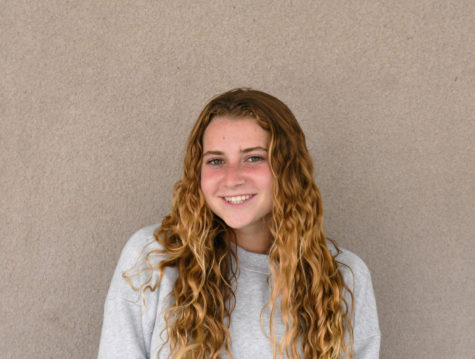PUSD distributes menstrual products
October 17, 2022

For many students, the presence of menstrual products in the restrooms is as essential as the presence of soap or toilet paper. But it wasn’t until Amelia Kane (11) began stocking pads and tampons in the restrooms last year that these products were easily accessible on campus.
Kane’s idea to supply menstrual products began when her mom told her about the Menstrual Equality For All Act (AB 367), which would allocate state funding towards improving the accessibility of menstrual products on college and high school campuses, and in public spaces. The act was set to go into effect during the 2022-2023 school year. This excited Kane, but she said she felt that the provision of menstrual products was something that Westview could already be doing.
“It’s a right to have menstrual products, to feel clean and to be able to learn in a safe environment,” Kane said.
Last year, Kane brought her idea to the ASB class and Westview administration. Once approved, she began making three trips a week to each of the girls restrooms on campus, stocking containers that she purchased from the dollar store with products provided by the health office.
The program lasted for a few months, but was shut down by administrators late last winter due to vandals defacing the products and containers. Though on hiatus, Kane’s menstrual products made a lasting impression on campus.
“People would ask me [about where the menstrual products were], because I had become known for it,” Kane said. “And I’d see Snapchat [stories] encouraging me.”
For Kane, it was the knowledge that what she was doing was making a difference, as well as encouragement from her ASB classmates and advisor Dennis Sosnowski that inspired her to continue fighting for the program.
“Mr. S was super, super supportive about it,” Kane said. “It started out as my project, but I think about a week in, it was no longer just my project. It was just as much as Mr. S’s project. And props to him, because not many middle-aged, male teachers would want to talk about menstrual products for 30 minutes every day with their students.”
Soon after being told about Kane’s idea, Sosnowski became invested in the project himself.
“ASB’s main job is to connect with students, and this is something that is definitely needed for 50% of the students at Westview,” Sosnowski said. “So, my [focus became] ‘how can I support Kane,’ and my job became to focus on the logistics of doing it.”
Sosnowski and Kane alike were determined to bring menstrual products to the restrooms this year in a more permanent way. Earlier this year, a colleague who was aware of Kane’s mission told Sosnowski about Dotstash, a menstrual product provider that had partnered with another school in the area.
“I contact[ed] Dotstash, set up a Zoom with them, and ended up talking for 30 or 45 minutes about what Amelia was doing, and what we were doing on campus,” Sosnowski said. “[The Dotstash employee] was able to educate me about the California State Assembly bill that passed, and how that needs to go into effect, and how [Dotshash] was trying to work with high schools and universities to make sure that they had the resources needed to meet the requirements of [AB 367].”
When Sosnowski brought the idea of a Dotstash partnership to administration, they found $6,000 in the annual budget to put towards the program, but when they went to the district to get the expenditure approved, the district had a different idea.
“The district said, ‘Hold on, don’t use your money—let’s see if this is something that the entire district should do,” Sosnowski said.
On August 17, Dotstash put out a press release announcing their partnership with PUSD, and their plans to provide menstrual products in all women’s restrooms, all gender restrooms, and one men’s restroom in each of the district’s middle and high schools.
Until the permanent dispensers arrive, Westview has received two temporary menstrual product bins from Dotstash. Kane is hopeful that vandalism won’t be as much of a concern now that the dispensers are of a higher quality.
“If something looks nice, you usually have a little bit more appreciation towards it,” Kane said. “And then you’re less likely to vandalize it—compared to the Dollar Tree bins.”
Kane is excited about the Dotstash partnership and grateful that the program has become something bigger than herself. Her main goal is for it to continue and prosper long after she graduates in 2024.
“I think that this whole project has given me hope,” Kane said. “It’s easy to just do what’s expected of you, but it’s harder to have an idea, and then turn that idea into a [reality]. What I’ve learned, really, is that there are a lot of people who want to support you. It’s just [about] taking that initiative.”


